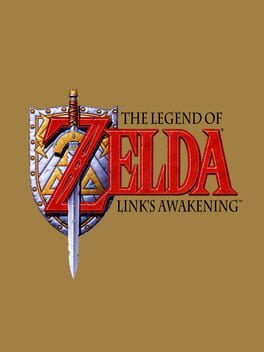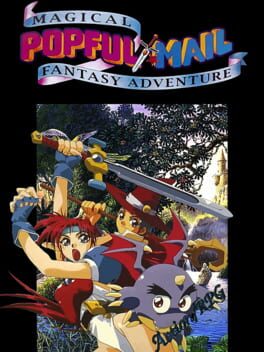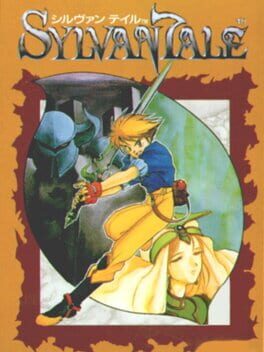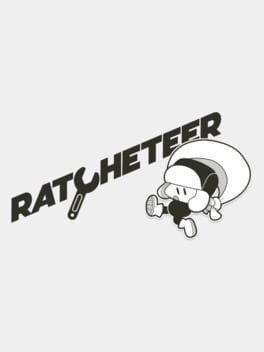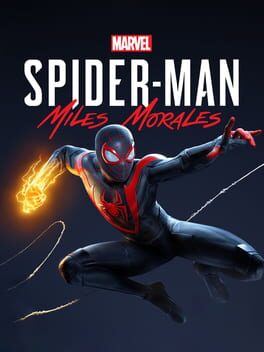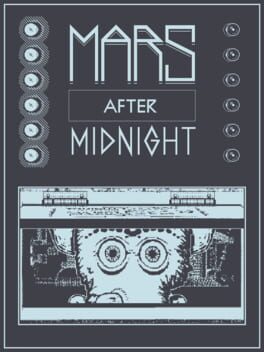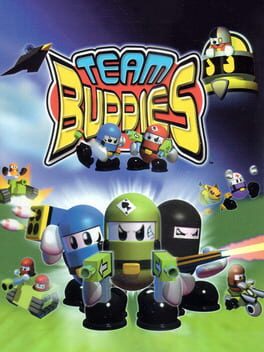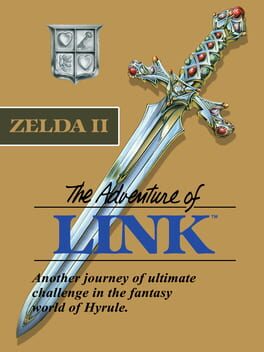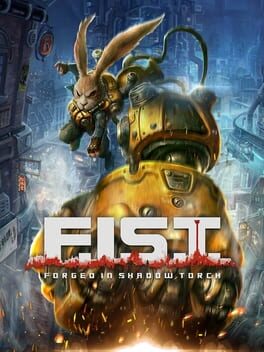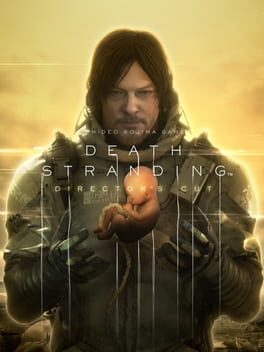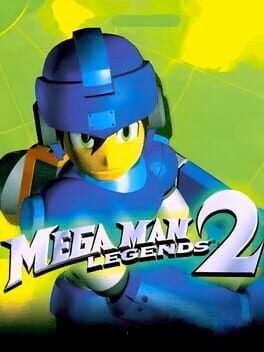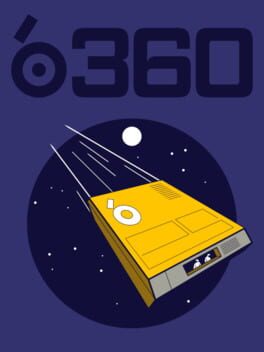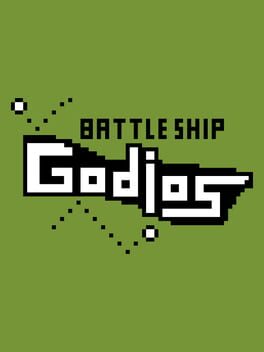Kez
Very interesting entry in the Zelda lineage. Fundamentally a great game with wonderful dungeon design, novel enemy and boss encounters and excellent puzzles. Considering the limitations of the Game Boy, what this game achieves is remarkable - it's really offers no less than any other Zelda game.
What it also brings to the table, something I really appreciated, is a sort of bizarre whimsy and sense of humour that you rarely see in Nintendo games these days. There is a just a sprinkle of attitude here, in the language the characters use and some of the events. I much prefer it to the straightforward, sterile approach most of the Zelda games stick to.
What it also brings to the table, something I really appreciated, is a sort of bizarre whimsy and sense of humour that you rarely see in Nintendo games these days. There is a just a sprinkle of attitude here, in the language the characters use and some of the events. I much prefer it to the straightforward, sterile approach most of the Zelda games stick to.
2024
Very enjoyable game, excellent art style and atmosphere. Everything is cleverly put together. I love the way it teaches you all its mechanics via world design, and respects the player to figure things out for themselves. That approach results in a lot of satisfying "A-ha!" moments, and revisiting earlier areas with your new educated viewpoint later in the game is really rewarding.
The layers of puzzles and secrets is something that doesn't appeal to me specifically, but I love that it's there. It's kinda fun to just know about these things bubbling under the surface even if you don't engage with them fully, it makes the world feel deeper and more immersive.
I think it admirably achieves everything it sets out to be, and I only really knocked a star off because I prefer a bit more combat in these styles of games. Considering that fact, I still had a wonderful time playing it.
The layers of puzzles and secrets is something that doesn't appeal to me specifically, but I love that it's there. It's kinda fun to just know about these things bubbling under the surface even if you don't engage with them fully, it makes the world feel deeper and more immersive.
I think it admirably achieves everything it sets out to be, and I only really knocked a star off because I prefer a bit more combat in these styles of games. Considering that fact, I still had a wonderful time playing it.
This is a review of the Unworked Designs version of Popful Mail. Part of a popular series of hacks removing the controversial difficulty and balance tweaks of Working Designs releases.
Popful Mail is a cute, breezy action RPG for the Sega CD. You initially play as Mail, an elven warrior determined to strike it rich as a bounty hounter. As the game progresses, you unlock other characters each with distinct playstyles and personalites. You can switch between characters during regular gameplay via the menu, but only play as one at a time.
Gameplay is simple. It consists of 2D platforming and striking enemies using various attacks based on your equipped weapon and character. You navigate mazelike dungeons, defeat numerous bosses, find settlements with shops to upgrade your gear and buy items. Though there is a world map and you can return to previous locations, the game is largely linear and I believe only one instance of visiting an earlier location was required for the main story.
The levels are somewhat mazelike, but just small enough in scale that they are easily navigable. Exploring and finding secrets is good fun, and I found myself getting very comfortable with the gameplay loop after the first few levels.
Star of the show here really is presentation, with beautiful sprites, impressive use of parallax throughout and fully voiced FMV anime cutscenes. The game is gorgeous to look at. There is a great deal of stage variety in terms of colour palettes and background effects, and lots of different NPCs and enemy types to encounter.
Music here is serviceable, it sounded to me as though it was being handled by the FM chip in the console rather than CD audio - presumably to leave room for the enormous quantity of voiced dialog! Much of the games story scenes feature voiced dialog, and incredibly many of them play out differently depending which character you currently have selected.
The dialog itself is a quite bizarre in places. Working Designs are known for taking quite a lot of liberties with the original material and injecting their own juvenile sense of humour. This is mostly quite entertaining, although occasionally offensive by modern standards, I can't help but feel that something meaningful was lost in translation here. It really feels like an unofficial fan translation of dubious quality rather than a licensed, published work.
Overall, Popful Mail is a fun game. It doesn't bring a lot to the table in terms of innovation, but everything works well enough. The entire experience is elevated by the incredible presentation. As the game progresses, rather than becoming repetitive each new area feels more impressive than the last and each boasts its own unique atmosphere. I had a good time with this one.
Popful Mail is a cute, breezy action RPG for the Sega CD. You initially play as Mail, an elven warrior determined to strike it rich as a bounty hounter. As the game progresses, you unlock other characters each with distinct playstyles and personalites. You can switch between characters during regular gameplay via the menu, but only play as one at a time.
Gameplay is simple. It consists of 2D platforming and striking enemies using various attacks based on your equipped weapon and character. You navigate mazelike dungeons, defeat numerous bosses, find settlements with shops to upgrade your gear and buy items. Though there is a world map and you can return to previous locations, the game is largely linear and I believe only one instance of visiting an earlier location was required for the main story.
The levels are somewhat mazelike, but just small enough in scale that they are easily navigable. Exploring and finding secrets is good fun, and I found myself getting very comfortable with the gameplay loop after the first few levels.
Star of the show here really is presentation, with beautiful sprites, impressive use of parallax throughout and fully voiced FMV anime cutscenes. The game is gorgeous to look at. There is a great deal of stage variety in terms of colour palettes and background effects, and lots of different NPCs and enemy types to encounter.
Music here is serviceable, it sounded to me as though it was being handled by the FM chip in the console rather than CD audio - presumably to leave room for the enormous quantity of voiced dialog! Much of the games story scenes feature voiced dialog, and incredibly many of them play out differently depending which character you currently have selected.
The dialog itself is a quite bizarre in places. Working Designs are known for taking quite a lot of liberties with the original material and injecting their own juvenile sense of humour. This is mostly quite entertaining, although occasionally offensive by modern standards, I can't help but feel that something meaningful was lost in translation here. It really feels like an unofficial fan translation of dubious quality rather than a licensed, published work.
Overall, Popful Mail is a fun game. It doesn't bring a lot to the table in terms of innovation, but everything works well enough. The entire experience is elevated by the incredible presentation. As the game progresses, rather than becoming repetitive each new area feels more impressive than the last and each boasts its own unique atmosphere. I had a good time with this one.
1995
A cute little 2D Zelda-like. Gotta give this game credit for being on the Game Gear, there just aren't that many games like this on the platform and it absolutely biases my review score.
It looks and sounds really nice. The sprites are expressive and have great animations, especially the player character. Monsters have a good amount of visual variety. The world and the dungeons is also nicely detailed and varied - even though many of the areas are grassy plains and forests, somehow each place manages to have its own aesthetic identity. The music is good enough, not super memorable but fits the game well. Sword attacks have a thunk, thunk, THUNK rhythm that I found satisfying.
For the most part, the adventure is quite straightforward. You unlock new abilities and items that allow you to solve puzzles and defeat dungeons. Talking to NPCs gives you hints on how to proceed. Some of the later "puzzles" are just unfair. There is one NPC you can trek across the world to speak to for vague hints, but I had a look a couple of things up.
However, other than that - the game is fun! The combat is very simple, but each enemy has just enough variety to present a new challenge. Navigating the world is fun, the NPC dialog is cute (I played a fan translation), the animal transformations are great - and it's on the Game Gear! Worth checking out.
It looks and sounds really nice. The sprites are expressive and have great animations, especially the player character. Monsters have a good amount of visual variety. The world and the dungeons is also nicely detailed and varied - even though many of the areas are grassy plains and forests, somehow each place manages to have its own aesthetic identity. The music is good enough, not super memorable but fits the game well. Sword attacks have a thunk, thunk, THUNK rhythm that I found satisfying.
For the most part, the adventure is quite straightforward. You unlock new abilities and items that allow you to solve puzzles and defeat dungeons. Talking to NPCs gives you hints on how to proceed. Some of the later "puzzles" are just unfair. There is one NPC you can trek across the world to speak to for vague hints, but I had a look a couple of things up.
However, other than that - the game is fun! The combat is very simple, but each enemy has just enough variety to present a new challenge. Navigating the world is fun, the NPC dialog is cute (I played a fan translation), the animal transformations are great - and it's on the Game Gear! Worth checking out.
2013
Very stylish, short and simple game. The presentation here is really confident, big bold solid coloured geometric shapes, bars bouncing up and down in the background in time to the beats of the music.
You play as a little shapeshifting object, when stationary - a square. If you move horizontally you turn into a circle so it looks like you're rolling, and when you jump you become a triangle that rotates to meet the ground. There is no narrative or tutorial to speak of, the game teaches you through gradually introducing and layering simple concepts throughout the handful of levels.
As a level begins, there will be little to no ambient sound and your objective is to gather a nearby little circle filled with colour. The circle will be moving erratically and emitting quiet, tinny music of some sort. Once you "pick up" the circle, you take it to a clearly marked area and the colours inside spill out and repaint your whole world. The music they contained also becomes loud and deep, and suddenly a new mechanic begins to operate in the world allowing you to progress.
The levels all proceed in broadly this way, with generous checkpoints throughout, and build up to a sort of boss battle with a novel mechanic. The punishment for death is fairly minimal and there are only four levels. I'd say it's quite achieveable to finish the game in around an hour or two.
Beating a level also unlocks a "mirror" version of that same level. As you'd expect, the whole thing is completely mirrored and the colours are also inverted. To add another wrinkle, there are no checkpoints in this mode - each mirror world must be cleared without making any mistakes. It may be just me but I found this challenge particularly gruelling, especially levels 3 and 4. There were a few bits that I just couldn't quite nail down consistently, yet the majority of the time was spent repeating the same trivial sections. Due to being rhythm-based, attempting to listen to something else while playing was a recipe for disaster. I found myself in this awkward space where the game didn't require enough to be truly engaging, but required just enough focus that if my mind wandered too much I would immediately be punished. Still, the mirror mode is really just a bonus - so it's up to you whether you want to pursue it! I found it tougher than I thought I would but eventually did managed to beat all the mirror levels.
Overall, I like this game a fair amount. It's simple, effective and a good length. A great way to spend a quiet afternoon - but think hard before considering the mirror mode as a lot of the charm wears off in repeated playthroughs!
You play as a little shapeshifting object, when stationary - a square. If you move horizontally you turn into a circle so it looks like you're rolling, and when you jump you become a triangle that rotates to meet the ground. There is no narrative or tutorial to speak of, the game teaches you through gradually introducing and layering simple concepts throughout the handful of levels.
As a level begins, there will be little to no ambient sound and your objective is to gather a nearby little circle filled with colour. The circle will be moving erratically and emitting quiet, tinny music of some sort. Once you "pick up" the circle, you take it to a clearly marked area and the colours inside spill out and repaint your whole world. The music they contained also becomes loud and deep, and suddenly a new mechanic begins to operate in the world allowing you to progress.
The levels all proceed in broadly this way, with generous checkpoints throughout, and build up to a sort of boss battle with a novel mechanic. The punishment for death is fairly minimal and there are only four levels. I'd say it's quite achieveable to finish the game in around an hour or two.
Beating a level also unlocks a "mirror" version of that same level. As you'd expect, the whole thing is completely mirrored and the colours are also inverted. To add another wrinkle, there are no checkpoints in this mode - each mirror world must be cleared without making any mistakes. It may be just me but I found this challenge particularly gruelling, especially levels 3 and 4. There were a few bits that I just couldn't quite nail down consistently, yet the majority of the time was spent repeating the same trivial sections. Due to being rhythm-based, attempting to listen to something else while playing was a recipe for disaster. I found myself in this awkward space where the game didn't require enough to be truly engaging, but required just enough focus that if my mind wandered too much I would immediately be punished. Still, the mirror mode is really just a bonus - so it's up to you whether you want to pursue it! I found it tougher than I thought I would but eventually did managed to beat all the mirror levels.
Overall, I like this game a fair amount. It's simple, effective and a good length. A great way to spend a quiet afternoon - but think hard before considering the mirror mode as a lot of the charm wears off in repeated playthroughs!
2022
Ratcheteer is an accomplished action-adventure game that takes a lot of cues from Link's Awakening. It has really cool and interesting set of abilities to unlock throughout the adventure, with some great dungeon designs.
Though I enjoyed it a lot, I have a couple of nitpicks with the game: Firstly, I feel like it is not the best fit for a Playdate. Some of the stiffer challenges require a lot of dexterity and fast item switching. Even as the game wound to a close I never really felt comfortable with the controls and was making annoying mistakes, as well as developing hand cramps in longer play sessions! I couldn't shake the feeling I'd enjoy this game much more if I just had a controller with a few more buttons on it, and though the crank use was cool it was not essential by any means.
My only other minor gripe is too much of the game is spent exploring dark underground spaces, where you can't see much of the screen and have to rely on a lantern to light a small area around you. This mechanic isn't inherently bad, but the novelty wore off long before the sections of the game where it was used less.
Still, I must stress these issues are very minor overall. I liked a lot about this game. The background and sprite work is phenomenal for a 1-bit display, and the soundtrack is super catchy and perfectly captures the vibe of the games it takes its inspiration from. I felt that the overall pacing within and between dungeons was excellent, and the upgrades all unlock distinct, interesting new game mechanics. The backstory and premise serve their purpose well enough - the overall concept is a fascinating one but story of course takes a backseat in these kinds of games and I think that's a good thing!
Certainly a great game for the Playdate, but I think it would be great fit as just a PC or Switch title too! I'd pick it up for sure if it landed on one of those platforms.
Though I enjoyed it a lot, I have a couple of nitpicks with the game: Firstly, I feel like it is not the best fit for a Playdate. Some of the stiffer challenges require a lot of dexterity and fast item switching. Even as the game wound to a close I never really felt comfortable with the controls and was making annoying mistakes, as well as developing hand cramps in longer play sessions! I couldn't shake the feeling I'd enjoy this game much more if I just had a controller with a few more buttons on it, and though the crank use was cool it was not essential by any means.
My only other minor gripe is too much of the game is spent exploring dark underground spaces, where you can't see much of the screen and have to rely on a lantern to light a small area around you. This mechanic isn't inherently bad, but the novelty wore off long before the sections of the game where it was used less.
Still, I must stress these issues are very minor overall. I liked a lot about this game. The background and sprite work is phenomenal for a 1-bit display, and the soundtrack is super catchy and perfectly captures the vibe of the games it takes its inspiration from. I felt that the overall pacing within and between dungeons was excellent, and the upgrades all unlock distinct, interesting new game mechanics. The backstory and premise serve their purpose well enough - the overall concept is a fascinating one but story of course takes a backseat in these kinds of games and I think that's a good thing!
Certainly a great game for the Playdate, but I think it would be great fit as just a PC or Switch title too! I'd pick it up for sure if it landed on one of those platforms.
As with all these games, very technically accomplished. The content of them is kinda like trashy food to me, and this one is no exception. Not a huge challenge or very engaging, but easy to just zone out and play through them.
The story was predictable but good enough, I think Miles is a great character. There are fewer annoying side activities than SM1 but the core issues I had with combat being kinda dull and the stealth sections just bad remain unchanged.
The story was predictable but good enough, I think Miles is a great character. There are fewer annoying side activities than SM1 but the core issues I had with combat being kinda dull and the stealth sections just bad remain unchanged.
2024
Mars After Midnight oozes charm. The atmosphere, the character designs, the music, the sound effects, the attention to detail. I loved everything about it, except playing it.
I understand this is a simple game, possibly aimed at children, but I found the core gameplay loop very unsatisfying. There is no skill or nuance involved whatsoever, at the beginning of a session it may take a moment or two to figure out exactly what you're looking for, and then the rest of the evening plays out exactly the same. It's beyond trivial.
For the first few of sessions the game's incredible presentation was enough while I waited for some escalation of stakes or complexity, but that escalation never comes. The final session is as simple as the first, and when I reached the credits of the game I just felt relieved.
This game may just not be for me. I can totally understand loving it simply for how great it looks and sounds, and the subtle humour throughout. The designs of the various aliens are truly spectacular. I am a fan of other Lucas Pope games, I'm not sure if that made me feel more or less generous with this game. I know I really wanted to love it, but the initial charm wore off quickly and I was left with only boredom.
I understand this is a simple game, possibly aimed at children, but I found the core gameplay loop very unsatisfying. There is no skill or nuance involved whatsoever, at the beginning of a session it may take a moment or two to figure out exactly what you're looking for, and then the rest of the evening plays out exactly the same. It's beyond trivial.
For the first few of sessions the game's incredible presentation was enough while I waited for some escalation of stakes or complexity, but that escalation never comes. The final session is as simple as the first, and when I reached the credits of the game I just felt relieved.
This game may just not be for me. I can totally understand loving it simply for how great it looks and sounds, and the subtle humour throughout. The designs of the various aliens are truly spectacular. I am a fan of other Lucas Pope games, I'm not sure if that made me feel more or less generous with this game. I know I really wanted to love it, but the initial charm wore off quickly and I was left with only boredom.
2000
A decent game overall. On the surface it has a lot of RTS elements but the game mostly feels and plays like a multidirectional shooter. There is a bit of early game strategy in terms of getting geared up before your opponents, but your AI buddies mostly just seem to run off and get themselves killed.
The sense of humour on display is extremely of-its-time. This game was very clearly developed in the UK in the lately 90s. As someone who grew up in that era, there is definitely a sense of nostalgia here and I found the silly story and various soundbites to be pretty entertaining. They definitely lean a bit too hard on a few stereotypes though.
I only played the singleplayer campaign, there was quite a bit of variety in mission types. Many variations on "annihilate all enemies", but also some escort style missions and a few boss battles. I found my success or failure in tougher missions often came down to how to enemy AI behaved early on - sometimes they would immediately swarm me before I had a chance to react, and others they would seemingly do nothing at all and wait for me to gear up and seek them out.
A few of the late-game challenges can get quite frustrating, and boiled down to trying them over and over until you find a tactic that works alongside a bit of RNG luck. What made this most annoying is the tedious process of failing a mission and beginning a new attempt. There is no restart option on failure, or within the pause menu of a mission. When you die it shows a screen of your enemies celebrating, boots you out to the level select where you have to dismiss a message telling you that you failed, then you reselect the level, click through the brief, wait for the level to load and finally it begins again. I understand long loading is a technical limitation of the hardware, but I'm sure the waiting could have been significantly reduced by having an immediate retry option. Some missions see you being wiped out in seconds by a huge boss, so your ratio of waiting to actually playing the game can be agonizing at times.
Still, on the whole I enjoyed playing through the game. Although I got stuck in a rut on a few missions, the objective always felt just achievable enough that I kept trying again and again until I finally make a breakthrough. The sense of improvement I felt as a player was tangible throughout and satisfying.
The sense of humour on display is extremely of-its-time. This game was very clearly developed in the UK in the lately 90s. As someone who grew up in that era, there is definitely a sense of nostalgia here and I found the silly story and various soundbites to be pretty entertaining. They definitely lean a bit too hard on a few stereotypes though.
I only played the singleplayer campaign, there was quite a bit of variety in mission types. Many variations on "annihilate all enemies", but also some escort style missions and a few boss battles. I found my success or failure in tougher missions often came down to how to enemy AI behaved early on - sometimes they would immediately swarm me before I had a chance to react, and others they would seemingly do nothing at all and wait for me to gear up and seek them out.
A few of the late-game challenges can get quite frustrating, and boiled down to trying them over and over until you find a tactic that works alongside a bit of RNG luck. What made this most annoying is the tedious process of failing a mission and beginning a new attempt. There is no restart option on failure, or within the pause menu of a mission. When you die it shows a screen of your enemies celebrating, boots you out to the level select where you have to dismiss a message telling you that you failed, then you reselect the level, click through the brief, wait for the level to load and finally it begins again. I understand long loading is a technical limitation of the hardware, but I'm sure the waiting could have been significantly reduced by having an immediate retry option. Some missions see you being wiped out in seconds by a huge boss, so your ratio of waiting to actually playing the game can be agonizing at times.
Still, on the whole I enjoyed playing through the game. Although I got stuck in a rut on a few missions, the objective always felt just achievable enough that I kept trying again and again until I finally make a breakthrough. The sense of improvement I felt as a player was tangible throughout and satisfying.
I was surprised how much fun I had playing Zelda II. I'd heard a lot about how punishing and unforgiving it is - and that's true, but the game feels excellent to control. Link is responsive and mobile, and getting through a tough encounter with minimal damage makes you feel very slick indeed.
It's impressive how much you can achieve with just a d-pad and 2 buttons. Obviously, you have attack and jump. When link isn't attacking, he is blocking - either high or low depending on whether you're ducking. As the game progresses you also unlock the iconic down and up stabs from the Smash games - these expand your options greatly as there is a great deal of verticality in the movement.
The magic system also works well, although only 3 of them (shield, jump, life) see a lot of use. The rest are only really useful in specific situations (some of them only need to be used once). Jump is great, and even when not required can make difficult platforming sections much easier. It can throw off your combat timings, as well as using up precious magic, so it's an interesting trade-off!
Zelda II also has an excellent soundtrack, some of which will be familiar to many people. The dungeon theme in particular is incredible, but the whole score is very pleasant and catchy. Which makes the incessant beeping at low health in this game all the more torturous!
Now, don't get me wrong, the game can be very cruel, especially the lives/continue system. You get 3 lives, and after a game over you continue from the starting location of the game. It's not all that bad though, you keep your level (but lose all exp on your current level, which can be a lot in the late game) and any items you've picked up. It can be emotionally draining to respawn at Zelda's side. However, the world is very quick to navigate as you unlock new shortcuts throughout - so I don't think it's quite as severe as it feels.
Although Link gets stronger through the adventure, the enemies do also and appear in increasingly awkward situations. Still, by the endgame you can tank quite a lot of hits and restore your health somewhat frequently if you manage your magic meter well. Although I did struggle in places and get frustrated, in reality even with retries and a couple minutes of extra walking after a continue I was back in action fairly quickly. The game is still rather short by modern standards, so having to replay some sections a few times isn't all that big of a deal.
Zelda II is truly a worthy member of the Zelda lineage, and I think it gets a bit overlooked! Honestly I enjoyed this game more than the original, simply due to the feel of the movement and combat. The soundtrack will stick with me for a long time. Strongly recommended for those with the patience to put up with this game's minor annoyances!
It's impressive how much you can achieve with just a d-pad and 2 buttons. Obviously, you have attack and jump. When link isn't attacking, he is blocking - either high or low depending on whether you're ducking. As the game progresses you also unlock the iconic down and up stabs from the Smash games - these expand your options greatly as there is a great deal of verticality in the movement.
The magic system also works well, although only 3 of them (shield, jump, life) see a lot of use. The rest are only really useful in specific situations (some of them only need to be used once). Jump is great, and even when not required can make difficult platforming sections much easier. It can throw off your combat timings, as well as using up precious magic, so it's an interesting trade-off!
Zelda II also has an excellent soundtrack, some of which will be familiar to many people. The dungeon theme in particular is incredible, but the whole score is very pleasant and catchy. Which makes the incessant beeping at low health in this game all the more torturous!
Now, don't get me wrong, the game can be very cruel, especially the lives/continue system. You get 3 lives, and after a game over you continue from the starting location of the game. It's not all that bad though, you keep your level (but lose all exp on your current level, which can be a lot in the late game) and any items you've picked up. It can be emotionally draining to respawn at Zelda's side. However, the world is very quick to navigate as you unlock new shortcuts throughout - so I don't think it's quite as severe as it feels.
Although Link gets stronger through the adventure, the enemies do also and appear in increasingly awkward situations. Still, by the endgame you can tank quite a lot of hits and restore your health somewhat frequently if you manage your magic meter well. Although I did struggle in places and get frustrated, in reality even with retries and a couple minutes of extra walking after a continue I was back in action fairly quickly. The game is still rather short by modern standards, so having to replay some sections a few times isn't all that big of a deal.
Zelda II is truly a worthy member of the Zelda lineage, and I think it gets a bit overlooked! Honestly I enjoyed this game more than the original, simply due to the feel of the movement and combat. The soundtrack will stick with me for a long time. Strongly recommended for those with the patience to put up with this game's minor annoyances!
A competent and enjoyable Metroidvania. I loved the world design here, the backgrounds in many of the areas are beautiful, the machinery on display looks badass and the character designs are great - especially the robot enemies.
It is very typical Metroidvania fare - exploring a large map, unlocking abilities to access new areas, opening up shortcuts as you go to aid in future navigation. I think the game is broadly successful here, exploration is fun and satisfying and many of the different areas have a nice distinctive style to them.
The weapon variety is cool, and you can unlock a bunch of different moves as the game progresses. I would say there are almost too many combat options, the game has a sort of tutorial section that teaches you complicated combos... but I didn't really find any reason to use them in the actual game. Most enemies and bosses can be taken out with a simple combination of dodging and charged punches. I tried to mix it up a bit toward the end of the game, but a lot of the time the enemies would shut down combos by blocking or teleporting away.
There is also a parry system you unlock partway through the game, this was quite satisfying to pull off but I never really felt confident in it. It works by pushing the left stick in the direction of the attack at the right moment, but the correct moment was often poorly telegraphed and it wasn't really clear which direction I should be pressing. I learned to parry quite a few moves reliably, but any time meeting a new enemy it would be just trial and error figuring out when to parry. Much easier to just dodge and charge punch.
I felt as though the game lost polish as it progressed, perhaps the latter portions were not playtested as thoroughly. A few enemy encounters were way harder than the rest of the game. I also felt that a some of the areas were overly sprawling and tedious to navigate, particularly the underwater sections.
Overall though, the game is quite breezy and fun to play. If you like the genre, it's an easy recommend. Although it feels like I was more critical than I intended in this review, the game is successful in a lot of key areas and delivers a mostly solid experience throughout.
It is very typical Metroidvania fare - exploring a large map, unlocking abilities to access new areas, opening up shortcuts as you go to aid in future navigation. I think the game is broadly successful here, exploration is fun and satisfying and many of the different areas have a nice distinctive style to them.
The weapon variety is cool, and you can unlock a bunch of different moves as the game progresses. I would say there are almost too many combat options, the game has a sort of tutorial section that teaches you complicated combos... but I didn't really find any reason to use them in the actual game. Most enemies and bosses can be taken out with a simple combination of dodging and charged punches. I tried to mix it up a bit toward the end of the game, but a lot of the time the enemies would shut down combos by blocking or teleporting away.
There is also a parry system you unlock partway through the game, this was quite satisfying to pull off but I never really felt confident in it. It works by pushing the left stick in the direction of the attack at the right moment, but the correct moment was often poorly telegraphed and it wasn't really clear which direction I should be pressing. I learned to parry quite a few moves reliably, but any time meeting a new enemy it would be just trial and error figuring out when to parry. Much easier to just dodge and charge punch.
I felt as though the game lost polish as it progressed, perhaps the latter portions were not playtested as thoroughly. A few enemy encounters were way harder than the rest of the game. I also felt that a some of the areas were overly sprawling and tedious to navigate, particularly the underwater sections.
Overall though, the game is quite breezy and fun to play. If you like the genre, it's an easy recommend. Although it feels like I was more critical than I intended in this review, the game is successful in a lot of key areas and delivers a mostly solid experience throughout.
I have mixed feelings about this one, in many ways this game is a truly unique and wondrous experience - it tackles perennial issues in game design in novel and exciting ways. It's easy to criticize because you spend a lot of time walking in it, but they made the walking engaging - that's the point! It requires planning and focus to walk. On several occasions during my time with Death Stranding I stopped paying attention to look at my phone or talk to someone, and Sam promptly fell flat on his face because I didn't avoid a rock or see a big step up ahead. There is a level of realism here that you just don't see in games, it's not 1:1 mapping of walking but it succeeds in requiring just about the same amount of focus and attention that walking would in the real world - an impressive feat.
Then there's the inventory system - normally in games with lots of items, your character has the ability to carry an absurd amount of items with sign that they're holding anything. In Death Stranding, almost everything you carry - you really carry it. That means careful planning of your inventory before a journey, considering what items you might need depending on the terrain you plan to cross, or the type of cargo you're carrying. The game has a fast travel system, but you can't travel with most items - the only way to get stuff from point A to point B is to schlep it there, and there are a bunch of smart ideas and systems in place (like 3D printing new items), to keep that diagetic and not too onerous.
Another cool idea is Timefall - magical rain that advances time for everything it touches. On the surface this is a pretty cool idea anyway (though doesn't really hold up to too much scrutiny), but it allows the game to include item degradation in a way that doesn't feel ridiculous. Most games with this feature, your items last for a laughably short time - iron swords that break after only 10 swings, etc. In this game, stuff gets ruined by time acceleration whenever it rains - it helps to explain why external structures get damaged, why your cargo and items get damaged, etc. I found it really satisfying.
For me, Death Stranding was at its best when I was simply carrying a large delivery over new, uncertain terrain and a cool song kicked in. The path between my and my destination was a puzzle to solve, and I found a lot of beauty in the bleakness and solitude. However, those songs never really got to play out because they always kicked in too late, and I'd find myself either waiting around outside my destination for the song to finish or just abruptly cutting it off.
That's how I felt for much of my playtime, stretches of awesome scenery, tranquility, engaging movement mechanics and mild problem solving, using a well placed ladder to make a journey much simpler, resting under a shelter left by another player.. only to be abruptly cut off from those feelings and thrust into some weird combat encounter, or an overly long cutscene filled with meaningless exposition. Some of the story beats and character moments were really cool, especially the opening of the game, but I really found myself struggling to stay invested by the end. I just wanted to deliver packages! Maybe that's how Sam feels too, and that's the point? I don't know. But I do know I dreaded being whisked off to World War 2 or whatever for a boring stealth battle, and I let out just a few too many exasperated sighs in my time with this game to say that I truly loved it. I think.
Then there's the inventory system - normally in games with lots of items, your character has the ability to carry an absurd amount of items with sign that they're holding anything. In Death Stranding, almost everything you carry - you really carry it. That means careful planning of your inventory before a journey, considering what items you might need depending on the terrain you plan to cross, or the type of cargo you're carrying. The game has a fast travel system, but you can't travel with most items - the only way to get stuff from point A to point B is to schlep it there, and there are a bunch of smart ideas and systems in place (like 3D printing new items), to keep that diagetic and not too onerous.
Another cool idea is Timefall - magical rain that advances time for everything it touches. On the surface this is a pretty cool idea anyway (though doesn't really hold up to too much scrutiny), but it allows the game to include item degradation in a way that doesn't feel ridiculous. Most games with this feature, your items last for a laughably short time - iron swords that break after only 10 swings, etc. In this game, stuff gets ruined by time acceleration whenever it rains - it helps to explain why external structures get damaged, why your cargo and items get damaged, etc. I found it really satisfying.
For me, Death Stranding was at its best when I was simply carrying a large delivery over new, uncertain terrain and a cool song kicked in. The path between my and my destination was a puzzle to solve, and I found a lot of beauty in the bleakness and solitude. However, those songs never really got to play out because they always kicked in too late, and I'd find myself either waiting around outside my destination for the song to finish or just abruptly cutting it off.
That's how I felt for much of my playtime, stretches of awesome scenery, tranquility, engaging movement mechanics and mild problem solving, using a well placed ladder to make a journey much simpler, resting under a shelter left by another player.. only to be abruptly cut off from those feelings and thrust into some weird combat encounter, or an overly long cutscene filled with meaningless exposition. Some of the story beats and character moments were really cool, especially the opening of the game, but I really found myself struggling to stay invested by the end. I just wanted to deliver packages! Maybe that's how Sam feels too, and that's the point? I don't know. But I do know I dreaded being whisked off to World War 2 or whatever for a boring stealth battle, and I let out just a few too many exasperated sighs in my time with this game to say that I truly loved it. I think.
2000
This game starts fairly strong but quickly deteriorates into a bit of a mess. The combat lacks balance, the price of upgrades is completely unreasonable, it feels very unfair in places.
Still, the game is not without its charms, the story is serviceable if a bit unsatisfying and the character models/cutscenes look and sound fantastic - especially for a game of this era.
Still, the game is not without its charms, the story is serviceable if a bit unsatisfying and the character models/cutscenes look and sound fantastic - especially for a game of this era.
2022
One I got into a groove with this game, I had a good time with it. The crank controls work well, the music and general atmosphere is super chill.
It was hard at first, and there are some annoyances like the way the ball will sometimes bounce around just out of reach and seems to just completely pass through your bat thing. It's also very difficult to be accurate and consistent with the crank, but most of the game was not so fast paced that this became a problem.
I was about ready to say I really liked this game and that I felt it succeeded in what it wanted to be. However, the last handful of levels are such a brutal step up in difficulty - and in a very frustrating way - that I ended up soured on the experience a lot.
I guess I didn't notice till the end, or maybe this mechanic is only shows up in later levels, but as your ball bounces around, it gets slower (thus more manageable). So your ball is at its fastest right at the start of a level, or after you die.
This really became an issue for me toward the end, as the levels start out blisteringly fast and gradually slow down to a manageable pace if you can tough it out. The minor control issues and unforgiving mechanics become extremely obvious at high speed, trying to manoeuvre the crank that quickly and precisely just doesn't work well for me.
However, you also get these items randomly appear that make the ball stick to your paddle next time you touch it, so you can aim your next shot. Only that next shot is once again at super high speed, and totally undoes all the work you had to do to survive this far. These items seemed to appear at random, and sometimes would be absent for an entire attempt but other times appear in rapid succession - they are near impossible to avoid and basically wipe out your attempt.
So a lot of the attempts would go like, you start out the level super fast, survive long enough to slow the ball down and start chipping away at the blocks, sometimes for several minutes, then one of these items appears and resets the speed super fast, you lose a ball, respawn, but it's super fast again, so you lose the rest in rapid succession. So infuriating!
Anyway, I did get through the game in the end - but I ended it feeling a lot less positive than I thought I would due to this experience.
It was hard at first, and there are some annoyances like the way the ball will sometimes bounce around just out of reach and seems to just completely pass through your bat thing. It's also very difficult to be accurate and consistent with the crank, but most of the game was not so fast paced that this became a problem.
I was about ready to say I really liked this game and that I felt it succeeded in what it wanted to be. However, the last handful of levels are such a brutal step up in difficulty - and in a very frustrating way - that I ended up soured on the experience a lot.
I guess I didn't notice till the end, or maybe this mechanic is only shows up in later levels, but as your ball bounces around, it gets slower (thus more manageable). So your ball is at its fastest right at the start of a level, or after you die.
This really became an issue for me toward the end, as the levels start out blisteringly fast and gradually slow down to a manageable pace if you can tough it out. The minor control issues and unforgiving mechanics become extremely obvious at high speed, trying to manoeuvre the crank that quickly and precisely just doesn't work well for me.
However, you also get these items randomly appear that make the ball stick to your paddle next time you touch it, so you can aim your next shot. Only that next shot is once again at super high speed, and totally undoes all the work you had to do to survive this far. These items seemed to appear at random, and sometimes would be absent for an entire attempt but other times appear in rapid succession - they are near impossible to avoid and basically wipe out your attempt.
So a lot of the attempts would go like, you start out the level super fast, survive long enough to slow the ball down and start chipping away at the blocks, sometimes for several minutes, then one of these items appears and resets the speed super fast, you lose a ball, respawn, but it's super fast again, so you lose the rest in rapid succession. So infuriating!
Anyway, I did get through the game in the end - but I ended it feeling a lot less positive than I thought I would due to this experience.
2022
Battleship Godios is a really interesting concept for a game, a shooter where you have to catch your bullet as it bounces around the level - losing it altogether if it goes off-screen. It feels a bit like breakout crossed with a simple 80s shooter.
Each level is fairly short, and the difficulty ramps up quickly. If you get hit, you lose a life but can rewind time using the crank as far back as you like and resume. You can also just rewind time whenever you want, it seems, and with minimal penalty - so if your bullets fly off screen you can rewind time to before you lost them and try again. When you do well (kill enemies fast, clear levels without dying or maybe(?) without rewinding) you are rewarded with lives. It's quite easy to rack up a considerable count of lives in the early few levels, but it's equally easy to lose them all very quickly - especially if you're careless with the rewinds.
Some of the later encounters are very unforgiving, requiring you to move around in tight spaces as the ship you're attacking randomly changes speed. Memorization is basically required, however the game is also very short so that is not too onerous.
Once you've beaten all the levels, the game just loops only this time the enemies are pretty much completely invisible! At this point the game doesn't even try to hide how memorization heavy it is, you literally are just trying to hit invisible targets from your recall of where they were previously. I didn't find this fun, so once I'd run out of lives in this mode I didn't try again.
Each level is fairly short, and the difficulty ramps up quickly. If you get hit, you lose a life but can rewind time using the crank as far back as you like and resume. You can also just rewind time whenever you want, it seems, and with minimal penalty - so if your bullets fly off screen you can rewind time to before you lost them and try again. When you do well (kill enemies fast, clear levels without dying or maybe(?) without rewinding) you are rewarded with lives. It's quite easy to rack up a considerable count of lives in the early few levels, but it's equally easy to lose them all very quickly - especially if you're careless with the rewinds.
Some of the later encounters are very unforgiving, requiring you to move around in tight spaces as the ship you're attacking randomly changes speed. Memorization is basically required, however the game is also very short so that is not too onerous.
Once you've beaten all the levels, the game just loops only this time the enemies are pretty much completely invisible! At this point the game doesn't even try to hide how memorization heavy it is, you literally are just trying to hit invisible targets from your recall of where they were previously. I didn't find this fun, so once I'd run out of lives in this mode I didn't try again.
